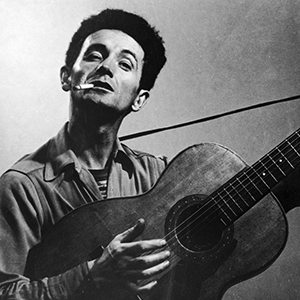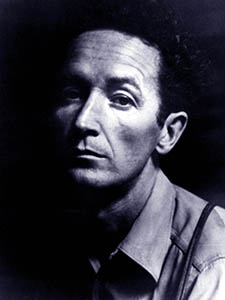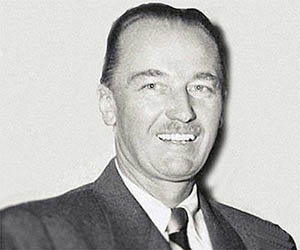
Woody Guthrie, ‘Old Man Trump’ and a real estate empire’s racist foundations
This article was written by Will Kaufman, Professor of American Literature and Culture at the University of Central Lancashire, and was originally published on The Conversation. Click here to read the full article.

In December 1950, Woody Guthrie signed his name to the lease of a new apartment in Brooklyn. Even now, over half a century later, that uninspiring document prompts a double-take.
Below all the legal jargon is the signature of the man who had composed 'This Land Is Your Land', the most resounding appeal to an equal share for all in America. Below that is the signature of Donald Trump’s father, Fred. No pairing could appear more unlikely.
Guthrie’s two-year tenancy in one of Fred Trump’s buildings and his relationship with the real estate mogul of New York’s outer boroughs produced some of Guthrie’s most bitter writings, which I discovered on a recent trip to the Woody Guthrie Archives in Tulsa. These writings have never before been published; they should be, for they clearly pit America’s national balladeer against the racist foundations of the Trump real estate empire.
Recalling these foundations becomes all the more relevant in the wake of the racially charged proclamations of Donald Trump, who last year announced, 'My legacy has its roots in my father’s legacy.'

A champion for equality
By the time he moved into his new apartment, Guthrie had traveled a long road from the casual racism of his Oklahoma youth.
He’d learned along the way that the North held no special claim to racial enlightenment. He had written songs such as 'The Ferguson Brothers Killing', which condemned the out-of-hand police killing of the unarmed Charles and Alfonso Ferguson in Freeport, Long Island, in 1946, after the two young black men had been refused service in a bus terminal cafe.
In 'Buoy Bells from Trenton', he denounced the miscarriage of justice in the case of the so-called 'Trenton Six' – black men convicted of murder in 1948 by an all-white jury in a trial marred by official perjury and manufactured evidence.

And in 1949, he’d stood shoulder to shoulder with Paul Robeson, Howard Fast and Pete Seeger against the mobs of Peekskill, New York, where American racism at its ugliest had inspired 21 songs from his pen (one of which, 'My Thirty Thousand', was recorded by Billy Bragg and Wilco).

